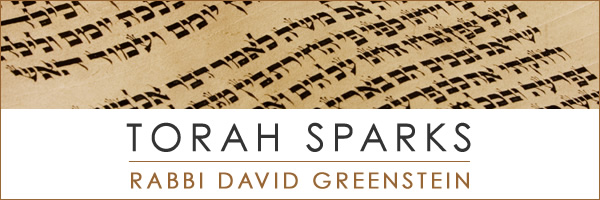Parashat Aharei Mot
Leviticus 16:1 – 18:30
The beginning of this portion details the rituals performed by the High Priest on Yom Kippur. This is the most awesome and holy day when he would enter the Holy of Holies to re-establish the relationship between God and the people of Israel for the new year.
We read this text on Yom Kippur itself, as a reminder of the need to seek atonement and purity in our lives. But the concerns of this portion go beyond that important issue. The words that introduce the ritual say: “He shall not come into the Holy Space any time [he wishes]…. [rather] let his enter with this…” (Lev. 16:2,3)
This means that a key concern of this parashah is about access to the holy. How accessible should the holy be? With what attitude should we approach the holy?
This is emphasized by the first words of the portion, the words that give it its name – Aharei Mot – “after the death”: “And God spoke to Moses after the death of Aaron’s two sons, who, when they tried to come closer to God’s Presence, died.” (Lev. 16:1)
The Torah tells us that improperly approaching God’s Holiness is a most severe sin. But it gives us very little information about what Aaron’s sons did wrong. With so little guidance, it would be natural for us to feel that attempting to approach the Holy is just too risky. We would avoid it entirely. Indeed, I would suggest that this is one powerful force in the estrangement of many people from religious involvement.
But if the Torah does not give us enough to go on in figuring out what Aaron’s son did wrong, it does give us explicit instruction about what Aaron must do right. I do not refer to the various sacrificial rituals that he must perform. Those rituals no longer apply. The message of the Torah must have a more enduring basis.
We find this basis in the purpose that the Torah gives for Aaron’s actions. The actions may change, but the purpose must be preserved. The purpose is “and he shall atone for himself, for his household and for the entire congregation of Israel.” (v. 17) The Torah teaches us that, when we seek to approach the Holy, when we seek access to our sacred Torah and our sacred synagogues, our concerns must be for ourselves and our families, to be sure. But they must also reach beyond, to the entire community.
According to this teaching of our Torah, the true test of whether our spiritual seeking is genuine, whether it is acceptable to God, is whether we see our spiritual journeys as inextricably committed to the welfare, not only of ourselves, of our community, as well. How we see our journeys will also influence what steps we take on our journeys. Indeed, we must seek at-one-ment with God on a personal level. But will we also engage in bringing about the at-one-ment of the entire community in the sanctuary that is the community’s center?
Shabbat Shalom
Rabbi David Greenstein
- Toby Stein: In Memoriam - Thu, Feb 8, 2024
- Faithfulness and Hope: Parashat Sh’lach - Thu, Jun 23, 2022
- Past Their Prime: Parashat B’ha`a lot’kha - Thu, Jun 16, 2022

